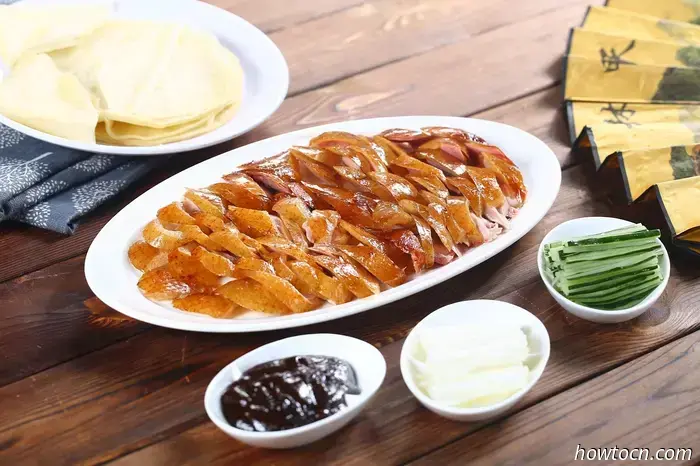
In the cold days leading up to the Lunar New Year of 2022, a video began to circulate on Chinese social media featuring a woman alone in an outdoor shed, dressed in a thin pink sweater. She was chained to the wall by a collar around her neck. The man recording asked her if she was cold, but it was unclear if she understood him. Initially referred to as Ms. Yang by authorities, she was later identified as Xiao Huamei (小花梅), meaning ‘Little Plum Blossom,’ and was revealed to be the wife of Mr. Dong from Feng County, Jiangsu Province. Although China had recently relaxed its birth control policies to permit three children per couple, she had given birth to eight children, seven of whom were male.
The video was shocking and horrifying. It sparked a wave of anger on the Chinese internet, breaking through the country’s internet restrictions and uniting liberals, feminists, and nationalists in indignation. The woman became known as ‘the mother of eight children’ (八孩母亲) or ‘the woman in chains’ (铁链女). Reports from The New York Times indicated that posts about her on Weibo received over 10 billion views, rivaling the attention of the Beijing Winter Olympics.
Some of this outrage was aimed at the government's response. In just two weeks, local governments issued four conflicting statements. On January 28, the day after the video went viral, officials in Feng County stated that Ms. Yang was legally married to Mr. Dong and was restrained due to mental illness. Two days later, they claimed Mr. Dong's deceased father found Ms. Yang begging on the street, and local officials determined she was capable of consenting to marry the younger Mr. Dong.
Then, on February 2, Xuzhou City government, which oversees Feng County, stated that ‘Little Plum Blossom’ had traveled east with a Ms. Sang from her hometown in Yunnan Province, supposedly to treat her mental illness, when she disappeared. Finally, on February 10, Xuzhou authorities announced that Mr. Dong, Ms. Sang, and Ms. Sang’s husband, Mr. Shi, had been arrested and charged with woman trafficking (拐卖妇女罪), and that the Feng County government was providing assistance to Ms. Yang and her children.
Journalists and internet users have continued to question the authorities' assertions. Journalists who visited Little Plum Blossom’s supposed hometown in Yunnan raised doubts about her identity. Two women who traveled to Feng County to conduct their own investigations were arrested. The authorities’ initial inability to recognize the trafficked woman and her situation and their inadequate response when the story broke harmed their credibility among wary internet users.
In light of the public outcry, seventeen local officials lost their jobs. The provincial government launched an investigation, which resulted in the arrest of the deputy director of the Xuzhou Public Security Bureau on March 29. Additionally, in March, Premier Li Keqiang called for stricter enforcement of trafficking laws and introduced measures to reunite women and children with their birth families.
The case of Little Plum Blossom has reverberated across China in a way that previous trafficking cases have not. However, the elements of her story, as far as they are known, echo a long history of women being sold into marriage in China and highlight that thousands of women and children are still trafficked each year, even though human trafficking is punishable by a prison term of up to ten years or even the death penalty. The trade in women and children is driven by poverty, inequality, and, despite years of government efforts to convey that daughters are just as valuable as sons, continuing societal pressure, particularly in rural areas, to produce a male heir to carry on the family line. The one-child policy instituted in the early 1980s resulted in imbalanced sex ratios, which also contributed to trafficking as families desperately sought wives for their sons. The case from Feng County indicates that at least some local officials were turning a blind eye.
Moreover, the case illustrates that in certain contexts, the distinction between ‘legitimate’ marriage and the buying of a woman or girl can often be vague. If history is any indication, halting the sale of women and children would necessitate a reassessment of what constitutes acceptable forms of marriage and family at both local and national levels.
As for Qing China, the trade in women and children was not confined to its borders. As late as the nineteenth century, practices such as selling one’s wife, alongside slavery, were accepted in England, North America, and Australia. Today, human trafficking persists worldwide. In China, the historical practice of selling women and children was influenced by neo-Confucian ideology and skewed sex ratios. In late imperial China, it was commonly understood that sons cared for their parents and performed essential ancestral rites, while daughters married out and contributed labor to their husbands’ families. A strong preference for sons resulted in widespread
-for-the-CNY-Holiday-2025.png)
If you intend to be in Beijing during Spring Festival, you might be curious about which places will be open during the holiday.

China's iron and steel sector ranks as the second largest carbon emitter, contributing roughly 17 percent of the nation's total emissions. Scientists and policymakers advocate for 'green steel,' which is produced using carbon-free reductants like hydrogen—instead of coal—as a global strategy to lower carbon emissions. Although transitioning to more sustainable steel production in China will take time and involve significant investment in the industry, it will significantly influence Australia's export market.

The Chinese Zodiac is a fascinating aspect of the culture during the Spring Festival, so let’s explore its origins and uncover its rich history!

Beginning at the Great Wall and concluding with a nightcap at a bar with views of the Forbidden City, Preston Thomas' 24 hours in Beijing are filled with a diverse range of experiences.
-Politics-in-Command-Xi-Jinpings-July-Visit-to-Xinjiang-The-China-Story.jpg)
Xi Jinping, the leading figure of the People's Republic of China (PRC), conducted a four-day 'investigative tour' of eastern Xinjiang in mid-July—marking his first visit to the Uyghur Region since 2014. At first glance, the trip and its public narrative seem similar to those of his predecessors. However, the ideological emphasis of Xi's comments during the visit centered on a historical account showcasing an innate sense of Zhonghuaness, where Uyghurs, Kyrgyz, Kazakhs, and other indigenous peoples of Xinjiang were included from the outset. This narrative is notably inclusive, minimizing non-Han ethnic identities not by rejecting them, but by subsuming them into a broader, constructed category. In essence, Xi’s interpretation of Zhonghua-ism has harnessed the notion of a collective identity for colonial objectives, emphasizing a shared history, common territory, and a sense of unity expressed through 'root veins.'
mens-voices-rights-and-the-vision-of-the-state-The-China-Story.jpg)
Even with challenges like the arrest of the 'Feminist Five' in 2015 for advocating against sexual harassment on public transport, feminist voices in China have become more prominent in recent years.
Prior to the Lunar New Year of 2022, a video surfaced on Chinese social media showing a woman chained by her neck to a wall. The incident involving Little Plum Blossom has resonated across China in a manner that earlier human trafficking cases have not.